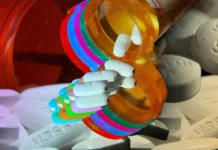The FDA is often considered the arbiter of new drug approval. Drugs that gain FDA approval are viewed as effective, evidence-based treatments. Yet, in recent years, the FDA has loosened the approval requirements and become embroiled in controversy, approving drugs against the recommendations of its own scientific advisory committees.
Now, researchers have found that recent psychiatric drug approvals follow this same pattern: In a new study investigating 16 FDA approvals for novel psychiatric drugs between 2013 and 2024, researchers found that drugs were approved based on flimsy evidence and against the recommendations of medical reviewers.
For instance, they highlight pimavanserin, an antipsychotic approved in 2016 based on one positive trial out of the four the FDA reviewed. They describe it as “a drug deemed not approvable by the FDA medical reviewers whose decision was overturned by leadership following a favorable advisory committee vote.”
They also highlight gepirone, an antidepressant approved in 2023 based on two positive trials out of the 12 that the FDA reviewed, and describe it as “a drug that was rejected thrice before gaining approval.” Gepirone was first created in 1986 and was a notorious failure for decades before eking out approval.
“The quality of evidence supporting psychiatric drug approvals varied substantially, underscoring the need for increased clarity and consistent application of FDA approval standards among drugs treating mental illnesses,” the researchers write.
The study was conducted by Rosa Y. Ahn-Horst, Erick H. Turner, and Aaron S. Kesselheim and published in JAMA Network Open. The researchers are all involved in the Program on Regulation, Therapeutics, and Law (PORTAL) at Brigham and Women’s Hospital
















To quote Kim Shepelle, if reality is one big aquarium, if you put a blender into it and turn it into fish soup, you can’t having realized your mistake turn it back into an aquarium. This is what we have done to truth, nature, and our brains. Oh well eh.
Report comment
“Help me!” Scream the psychiatrists and psychopharmacologists of the world. “Researches have questioned a psychiatric drug approval! Next they’ll be throwing their teddy bears and lollypops at me, i.e. themselves! Which is exactly what my patients do. Hooray! It’s raining men, hallelujah! Oops… (splat)
Just got hit by a wet fanny there, sorry…”
It’s raining women, children and men on him but psychiatry is pissing corpses and poisoning our eternities with it’s poisons both ideological and chemical.
Report comment
Help me – I’m shitting my pants because researchers questioned psychiatric drug approvals. Please save me dear leader! Because I’m a cry baby. I cry! I’m a pitch black big bang blood red explosive baby. I’m a pitch black Halloween nuclear bomb gonna explode your fucking universe baby. I’m just a cry baby. My tears are the night sky. They are mirrors of black looking upon black with silver moons flowing between the two innit kanisent it disn’t it blisn’t it.
Report comment